Green Initiatives
Nurture. Preserve. Conserve
Read more
A walk-only campus
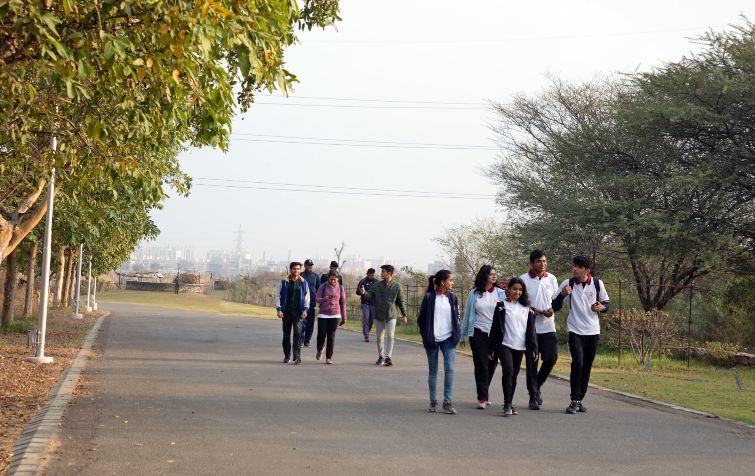
Green air-conditioning
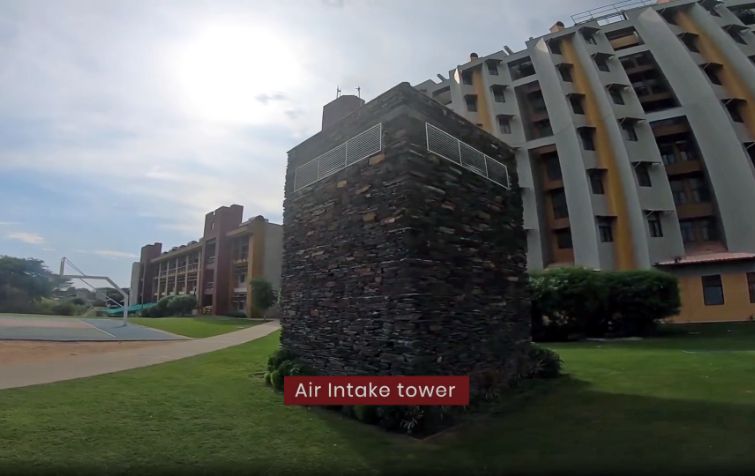
A framework of underground air tunnels, chimneys and heat exchange principles ensures a regular supply of fresh air and a healthy environment within the buildings. Fourteen 100-metre-long tunnels, situated four metres below the earth’s surface, draw air to where the temperature at all times is close to 25°C. The thermo-coupled air is transported across humidifiers and water curtains into all classrooms, offices, and hostels. Ducts fitted near the ceiling pull the hot air from the rooms, which is drawn by the vertical shafts in the building by natural convection.
The low-energy cooling system consumes less than 40 per cent of the energy vis-á-vis a normal air conditioning system, saving valuable energy in the process, and most significantly reducing its carbon footprint. Being a fresh air system, it has transformed the university’s Indoor Air Quality (IAQ) by drawing air from the oxygen-rich forest.
Other critical aspects of the 'Green air-conditioning' system are:
- Air handling units with options of both chiller coils and air-washing
- Ceiling fans in workplaces and residences provide comfort through a ‘wind-chill’ effect
- Large operable windows admit supply of fresh air as per residents' choice
Energy conservation
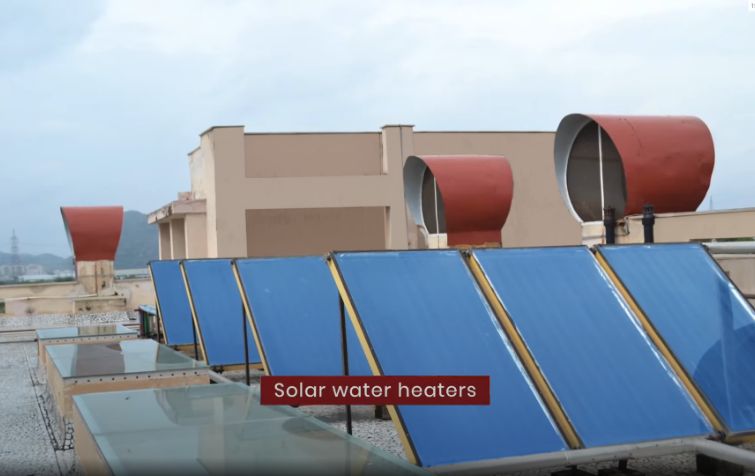
The ‘Green air-conditioning’ system leverages the area’s natural advantages, thereby saving energy. The various campus buildings are designed to allow maximum natural light during daytime, thus minimising the need for artificial lighting. Besides, NU has deployed Variable Frequency Drives (VFDs) and Building Management Systems (BMS) to improve energy conservation.
The use of renewable energy such as solar water heaters used to warm water also reduces the university’s dependence on the power grid. Energy efficient fixtures, movement sensors in toilets and staircases and PV solar street lighting further contribute to improve energy efficiency.
Natural resource management
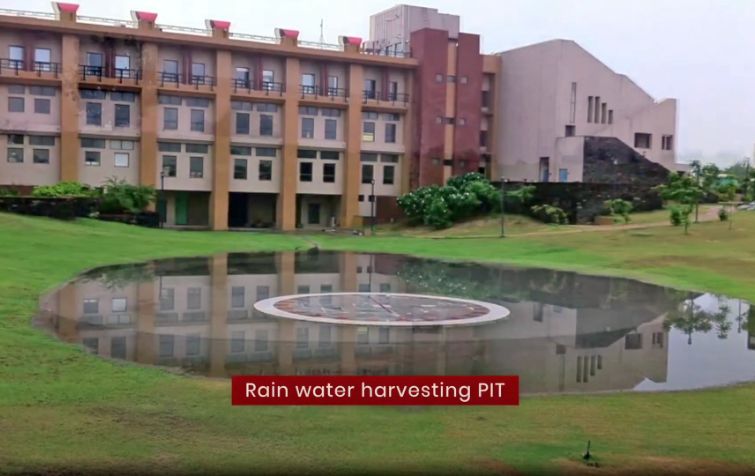
NU has actively contributed to preserving the area’s ecology. Desertification caused by the fury of natural run-offs from the neighbouring Aravalis has been effectively tackled by constructing 15 check-dams at various critical points in the vicinity. These check-dams contain the water run-off during monsoons and prevent soil erosion. They also help in recharging groundwater. NU has also constructed four water recharge wells on the campus to harvest rainwater.
A nursery on the campus nurtures and protects plants of local species. NU has systematically afforested the slopes of the Aravali range by planting over 1.5 lakh trees. This helps check soil erosion. Moreover, NU’s efforts have resulted in reducing illegal sand mining in the region. NU is also actively partnering with local organisations to revive and rejuvenate the neighbouring Sabi River.
Waste management
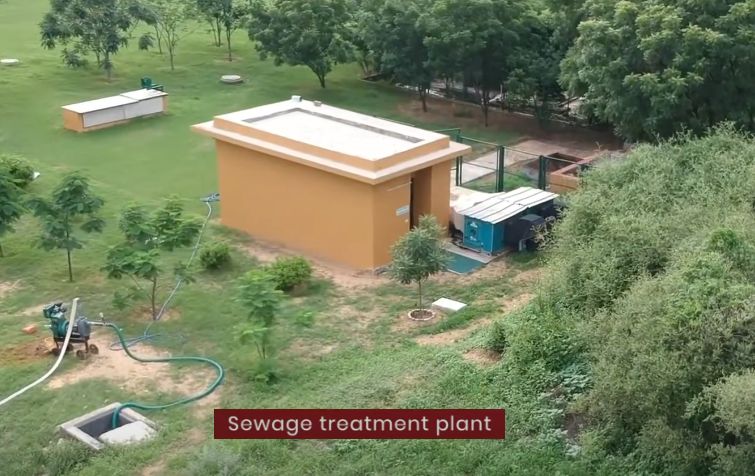
NU’s waste management efforts ensure the productive use of spent material. A sewage treatment plant on the campus recycles ~95 per cent of used water. The treated recycled water is utilised for horticulture and afforestation. Wastepaper is recycled through local processing units. Kitchen and food waste is recycled to produce manure.


